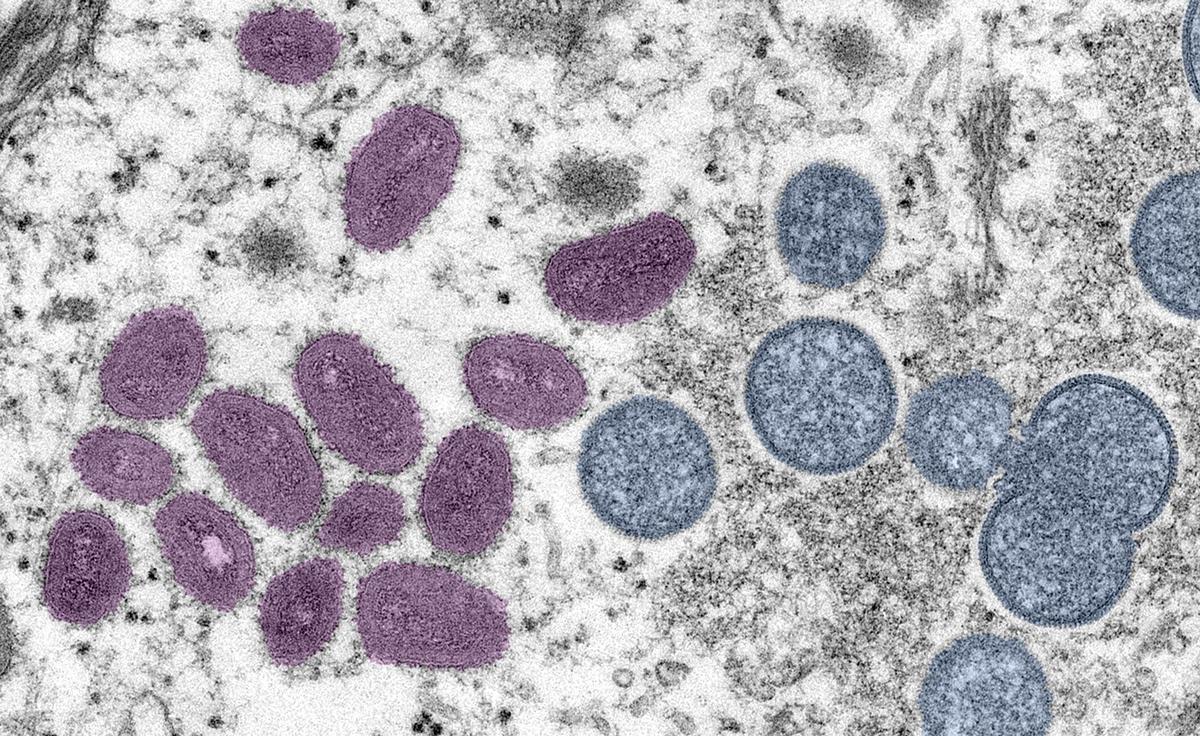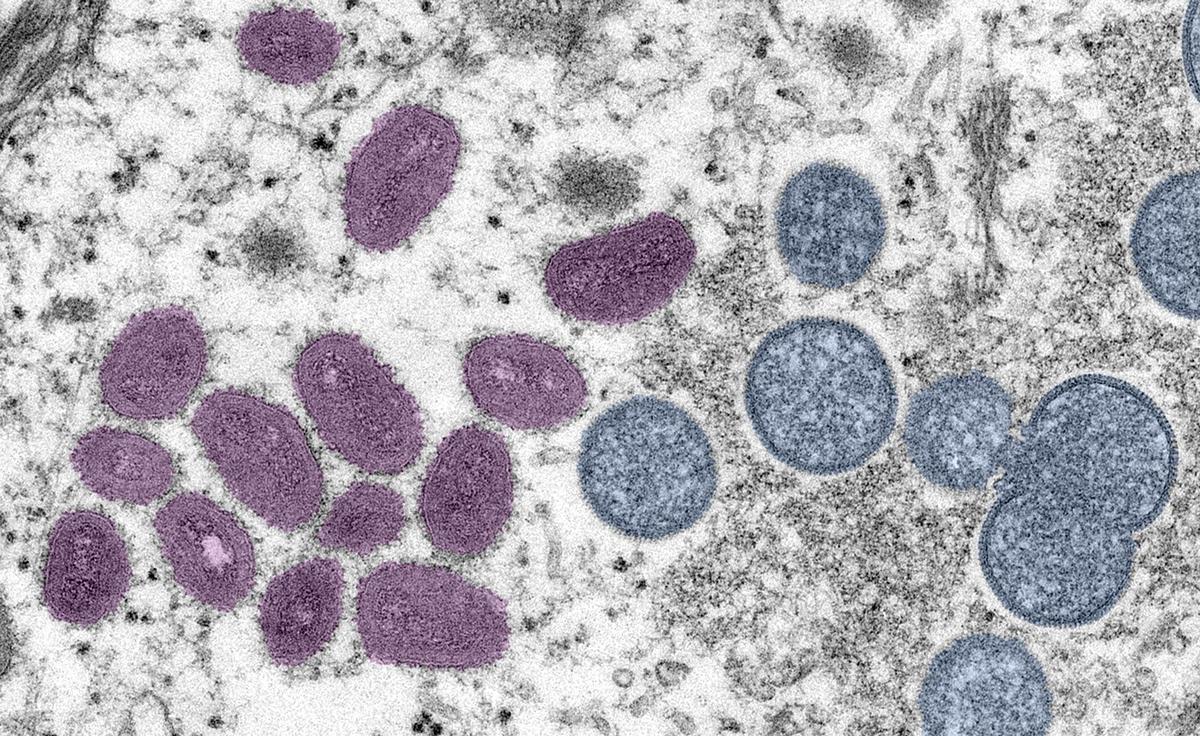CDC warns LGBTQ community about 'greater chance' of exposure to monkeypox
Wed. May 25, 2022 12:40 PM by GoPride.com News Staff

cdc is urging healthcare providers in the u.s. to be alert
photo credit // cdc.gov
Howard Brown Health: ‘closely monitoring for monkeypox in our Chicago communities’
Anyone can get or spread monkeypox, but recent evidence from outside the U.S. may suggest that there is limited community spread in gay and bisexual men.
Dr. John Brooks, chief medical officer for the CDC's Division of HIV/AIDS Prevention, said many of the people affected globally so far are men who identify as gay or bisexual.
He cautioned, “Some groups may have a greater chance of exposure right now, but by no means is the current risk of exposure to monkeypox exclusively to the gay and bisexual community in the U.S.”
Some LGBTQ organizations are concerned about the CDC's messaging.
“Stigma and blame undermine trust and capacity to respond effectively during outbreaks like this one,” said Matthew Kavanagh, UNAIDS Deputy Executive Director.
Monkeypox cases usually happen in West and Central Africa. But several people have been diagnosed recently in Canada, Portugal, Spain, the United Kingdom and the U.S.
At least seven cases are currently under investigation in the U.S. – including one confirmed in Massachusetts – and two presumed in south Florida.
Monkeypox is not a sexually transmitted disease, but it can spread through intimate contact during sex when someone has an active rash. It can spread through direct contact with bodily fluids or through contact with contaminated clothes or bed sheets, according to the CDC.
Monkeypox is not easily transmittable, and community spread is currently limited.
Chicago-based LGBTQ health provider Howard Brown Health said in a May 20 press release that it is “closely monitoring for monkeypox in our Chicago communities.”
The release continued, “Howard Brown primary care providers are taking precautions and will be screening patients for monkeypox who present possible symptoms.”
Initial symptoms include swollen lymph nodes, headache, fever, muscle aches and fatigue. The disease then progresses into a rash and lesions that blister and scab over.
Monkeypox patients in the current outbreak have recovered within a month without any specific treatment, according to the CDC. There have been no deaths reported.
For more information, visit cdc.gov
Dr. John Brooks, chief medical officer for the CDC's Division of HIV/AIDS Prevention, said many of the people affected globally so far are men who identify as gay or bisexual.
He cautioned, “Some groups may have a greater chance of exposure right now, but by no means is the current risk of exposure to monkeypox exclusively to the gay and bisexual community in the U.S.”
Some LGBTQ organizations are concerned about the CDC's messaging.
“Stigma and blame undermine trust and capacity to respond effectively during outbreaks like this one,” said Matthew Kavanagh, UNAIDS Deputy Executive Director.
Monkeypox cases usually happen in West and Central Africa. But several people have been diagnosed recently in Canada, Portugal, Spain, the United Kingdom and the U.S.
At least seven cases are currently under investigation in the U.S. – including one confirmed in Massachusetts – and two presumed in south Florida.
Monkeypox is not a sexually transmitted disease, but it can spread through intimate contact during sex when someone has an active rash. It can spread through direct contact with bodily fluids or through contact with contaminated clothes or bed sheets, according to the CDC.
Monkeypox is not easily transmittable, and community spread is currently limited.
Chicago-based LGBTQ health provider Howard Brown Health said in a May 20 press release that it is “closely monitoring for monkeypox in our Chicago communities.”
The release continued, “Howard Brown primary care providers are taking precautions and will be screening patients for monkeypox who present possible symptoms.”
Initial symptoms include swollen lymph nodes, headache, fever, muscle aches and fatigue. The disease then progresses into a rash and lesions that blister and scab over.
Monkeypox patients in the current outbreak have recovered within a month without any specific treatment, according to the CDC. There have been no deaths reported.
For more information, visit cdc.gov
